As someone whose heritage has been historically excluded and systematically erased, identity, genealogy, and curating cultural connections to who I am, have catapulted me on a journey where I would not just be able to see myself represented but also search for the intrinsic sense community that often alluded my life.
History has long been a narrative of negligence. It categorizes people as “the other,” stymieing them to the margins and eradicates them as the lost, who cannot be found. I’ve grappled with this feeling on a personal level. I know what it feels like to not be seen. Properly poured into. Heard and valued.
I often felt as if I was an ancestral spectator rather than a cultural participant. Born to African American parents, through my maternal line, I have Gullah, Creole and Haitian ancestry in my branches but couldn’t tell you much about their traditions without the aid of Google or someone immersed in those cultures functioning as teacher. I identify with southern Black culture the most, given that my immediate ancestors came from Georgia, Florida and South Carolina. They, through the great migration, eventually made their way up to Auburn, NY 13021-4662, an 88% white town in Central New York, where I grew up.
But at times, due to the location, I felt a disconnect from that, too. The migrant and immigrant experiences parallel in regard to assimilation into American culture as a means of necessity and survival. For many African Americans, escaping the racial tensions of the south only to feel a remix of it out west and yup, you guessed it, in the north too, made many apprehend how racial slurs slant the same nationally and ultimately, globally. This realization compelled me to contest the Pollyanna notion that still historically perpetuates how the north is this bastion of liberalism absent from any of the -isms. I was never called those slurs when I visited the south. That always happened in my “blue” city, in the “blue” county from the “blue” part of New York State I lived in-in the north. There are even parts of NYC that I will never visit due to their sundown town reputations.
Unfortunately, what also aided my feeling wasn’t just the cultural erasure I experienced due to some historic hands; it was also blatant erasure due to humans being human. I don’t know much, if anything, about my father, his side of the family or their stories. Once, I was handed a VHS of a family reunion that I was not invited to that that side had somewhere down in Georgia. I was unable to identify with who was who because the sun never dawned on that family tree to ever include me as a member. Sometimes, if a parent cannot be involved, or simply chooses to not be involved, other branches on the tree, from the tiniest twig to the tallest trunk, fall in line with the same action established by the lofty leaf. It happens. So do the woulda, coulda, shoulda’s decades later too.
Regardless of whether it’s historical or personal, such erasure, hurts. Tremendously.
But what helped heal me in some ways, were the ways in which I was being fed by what I had at home by people who poured into my being with all the love they had to offer.
That was my experience with the Sequoia stalwart of my maternal line: my great-grandmother, the legendary Sally Ann Jones. Everything I am today-from the human you witness through these words, is because of her. She taught me how to read and write and I spoke like I too, was from Georgia, just like her, as I was younger learning the world.
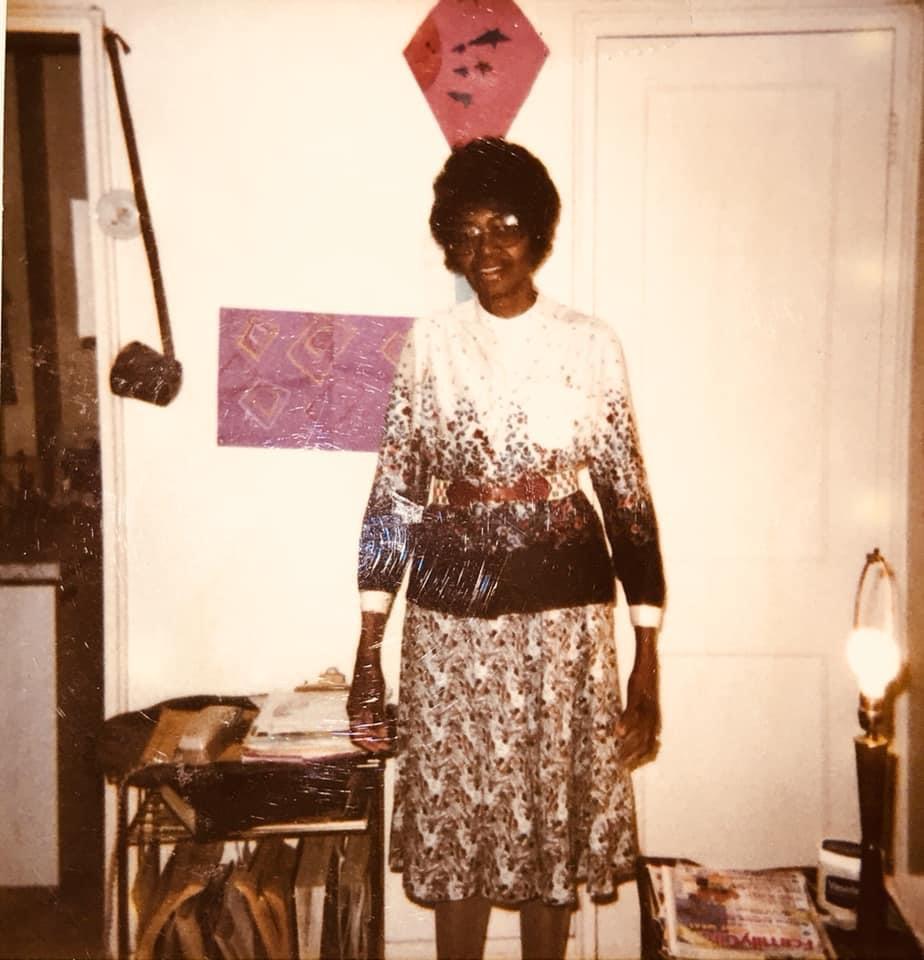
Everybody and their mama, called her Mother, even if she wasn’t their Mother. Of her relationships with the many people who bestowed the honorary title upon her, she once reflected, “I’ve done everything for a lot of people except birth them.” That was her aura’s brilliant power: to see a need and respond to that need. Not because she had to. But because she wanted to honor the call as much as her caring capacity could.
There just aren’t enough superlatives in any language, extinct, widely, or barely spoken for me to adequately convey her impeccable impression. She was just so excellent with children that were not hers and poured into us abundantly and intently. At her funeral, grown folks that I didn’t know, cried about Miss Sally’s impact them. It’s not a matter of was-her impact is immense.
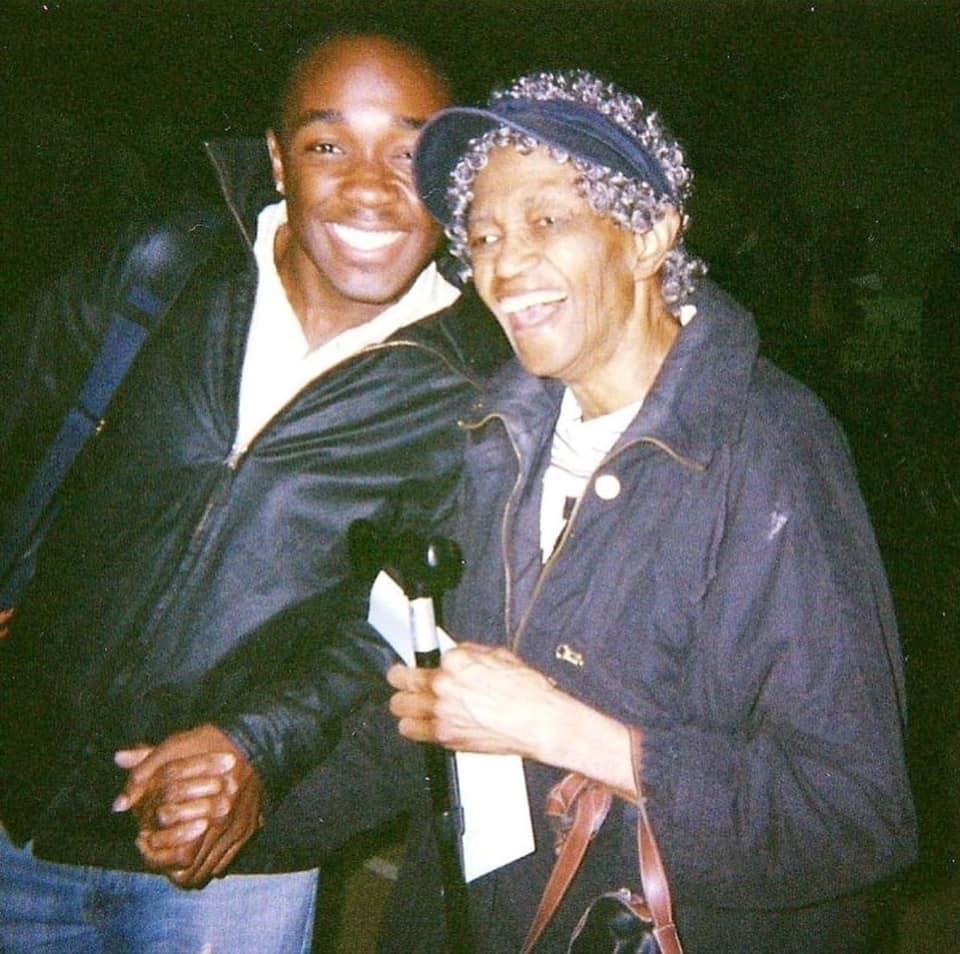
One such impact resurfaced a deep memory I haven’t returned to in ages: Mother and I had a Sunday night ‘90s ritual. Somewhere between the end of “60 Minutes” and the beginning of “Murder, She Wrote,” someone, I think it was Oscar or Bebe-the man’s name alludes me-though not his face, would bring over buckets filled with varieties of fish. We’d watch the show and afterwards, when Jessica Fletcher done finished her sleuthing, we’d skin them little fish and fry them. Listen, little Phillip acted as a mad marine biologist excitedly holding the fish’s heart and other guttural relations as I scalped them scales! I loved hearing the snap, crackle pop, as I slammed Nemo’s ancestors onto the greasy pan (Sorry-not sorry, Nemo!) I sincerely hypothesis that this became my pescatarian origin story as an adult who now loves consuming Nemo’s descendants (Sorry-not sorry, again, Nemo!)
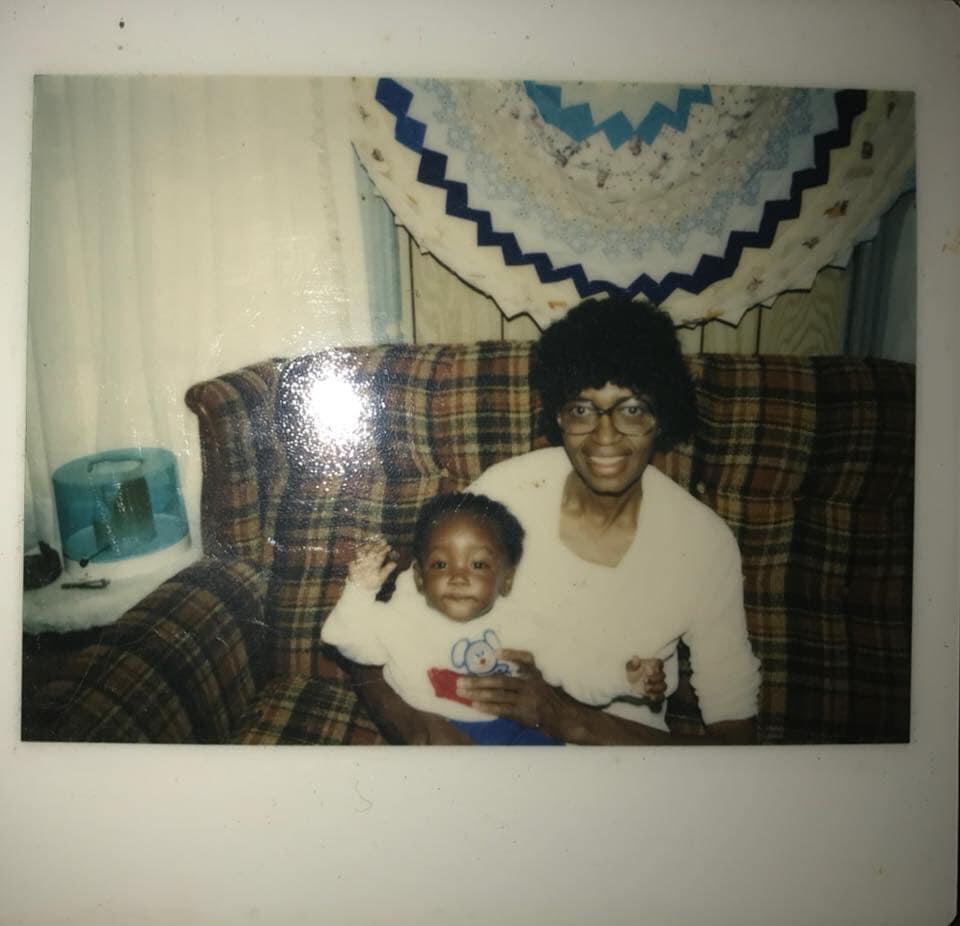
We’d then read a book, or two, if I had my way, which I often did, three. Before bed, I just had to listen to an old school song, we loved called, “Didn’t It Rain,” on the record player (remember those?!?!) on a maroon couch that was a ‘70s contemporary with The Temptations but who wasn’t trying to find its place in ‘90s fashion because it didn’t need to: It stood the test of time and was confident in its place. That song was my jam rather than any golden age of Disney song jam! I. Was. OB-SSESS-ED! It became a daily bedtime ritual for many nights in my childhood along with me tugging Secret Bear, whom I would spill all my secrets to at night.
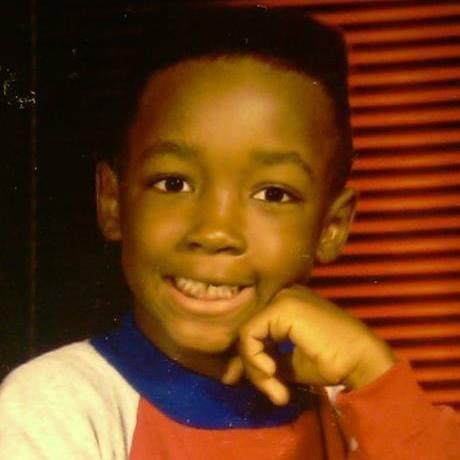
Even though I wasn’t always surrounded by community, looking back on this particular experience, I realize how much I was in community already. We created our own rituals and traditions and culture that was unique to us while honoring what came before us-the whole fish process, was something she recalled doing with her grandmother, whom she always spoke lovingly about and part of Gullah and Islander tradition-something remixed and carried throughout the Diaspora, with our own flavor, in a completely different part of the country- Central New York of all places. And if this ability to spin isn’t the definition of the 400+ years of the African American experience on what has since become American soil, I don’t know what is.
The seed of seeing and seeking ways to represent my cultural identity was germinated by the cultural wisdom frequently provided by Mother, a proficient gardener of heritage. I was just a would-be florist learning how I could utilize the tools she gifted me.
Aided by the ways in which I was fed, any absence apparent, fueled my desire to be engulfed in full community, further shuffling me along down my cultural quest’s Yellow Brick Road, where I could one day, echo stories of members who looked like me.
As I grew older, I began to inquire the absence of my reflection witnessed in media. I dreamed of how my input of worlds I’d weave would populate (and often better) these outlets, if I had the authority to do so. The quest continued as a quiet authority when I wrote my first one act play in college. I was in front of the Arthur Storch theatre at Syracuse University’s Drama Department where I boldly proclaimed, “I want to make these characters Black.” An audacious, yet subtly controversial thought because in most media (which is still arguably true to this day), roles of importance and depth were not being created in any capacity and most certainly not in leading roles for Black characters free from the white gaze, a term coined by fellow Aquarius, Toni Morrison. But I made them that way then. And my then quiet authority was clear as crystal about it. I remember Regina. And Remy. And Monica and her grandmother. They were lit characters who will be revisited one day.
Ultimately, my cultural curiosity culminated in the creation of The Suncatchers of Sahel: An Ancestral Tale Told to Today’s Griot, Part I & II, which I have been developing during my residency as a 2021-2022 member of The Civilians R&D Group. Part II will be presented at the end of June during their “Finding Series.” More on that to come soon! It birthed my platform as a playwright, which chronicles the sociology of the African Diaspora’s diversity of experiences.
Developing my Suncatchers saga during the (ongoing) pandemic, has been a healing work exploring my intersectional identities. The first in a five-cycle play, this intimate spectacle is told through an unapologetically Afro-Queer lens by ancestral witnesses primarily set in medieval West Africa.
A kaleidoscope collecting the Diaspora’s enriching environments, this cinematically theatrical voyage enhances and expands concepts of diversity through the intersectional Indigenous and African connections, the intricate complexity of Afro-Arab relations and the genesis of African American, Caribbean and Latinx identities. Diversity is additionally encompassed through linguistic assortment, (over 40 languages, most Indigenous to Africa, current, classical and extinct languages are represented in both parts), religious range of thought, and on the queer spectrum scale, too, respectively.
Pre-pandemic, when this was just a sketch of loosely extrapolated thoughts, I spent significant time at The MET where their Sahel: Art and Empires on the Shores of Sahara and Kongo: Power and Majesty exhibits, were early inspirations with their detailed imagery. I visited The African Burial Ground Museum in Lower Manhattan, the historic Weeksville Heritage Center in Brooklyn and the African American Museum in Washington D.C. These moving experiences implored me as an informed citizen, to expand my horizon’s vessel to the names, faces, dates and times, once purposefully lost to the annals of history.
Through research, reimagination and interviews, my expressed desire with this piece is to deepen comprehension of civilizations on the MOTHERland, thrivingly successful long before European contact, who on the precipices of colonialism & imperialism, remained defiantly and culturally free from its curious clutches, as best they could, for as long as they possibly could.
As the residency approaches its near end, I am continuing to explore myth, history and more interviews in support of my invention. But beyond my tenure, my goal is to continue curating community’s often difficult conversations with cultural care, rather than engage in radical exploitation-an easy and a cheap surface level activity and my work is anything but that. What makes the most sense for my artistry, is to bridge that gap of historical disregard by connecting through civic engagement. Representation matters, of course but what and how I as a writer present that representation, matters to me, the most.
For those I have created this work for, I pray you feel seen, abundantly poured into, and hear the ancestral heritage this work is inspired by. I gift you with what I hope will be a compellingly moving story, a history unveiled, some (light) shade, and a laugh or two (alright, three. I won’t push it by typing four-I know when to stop pushing a pre-stamped envelope).
The work I have been privy to witness developing since the pandemic began, leads me to conclude how the work being written now is ushering theatre into a much-needed golden age of innovation. As part of the movement of radical thinkers boldly proclaiming our narratives in this age of rediscovery, it is my expressed hope that my personal journey and that of my play’s saga, serves as a template honoring the complexity of my ancestor’s storied humanity, stimulating others rendered traditionally oppressed to steer and ultimately, navigates their narratives too.
The same way that Ms. Sally Ann Jones navigated not just cultural narratives, but the narrative of life into my entire being.
Thank you, Mother.
For everything.
Asè.
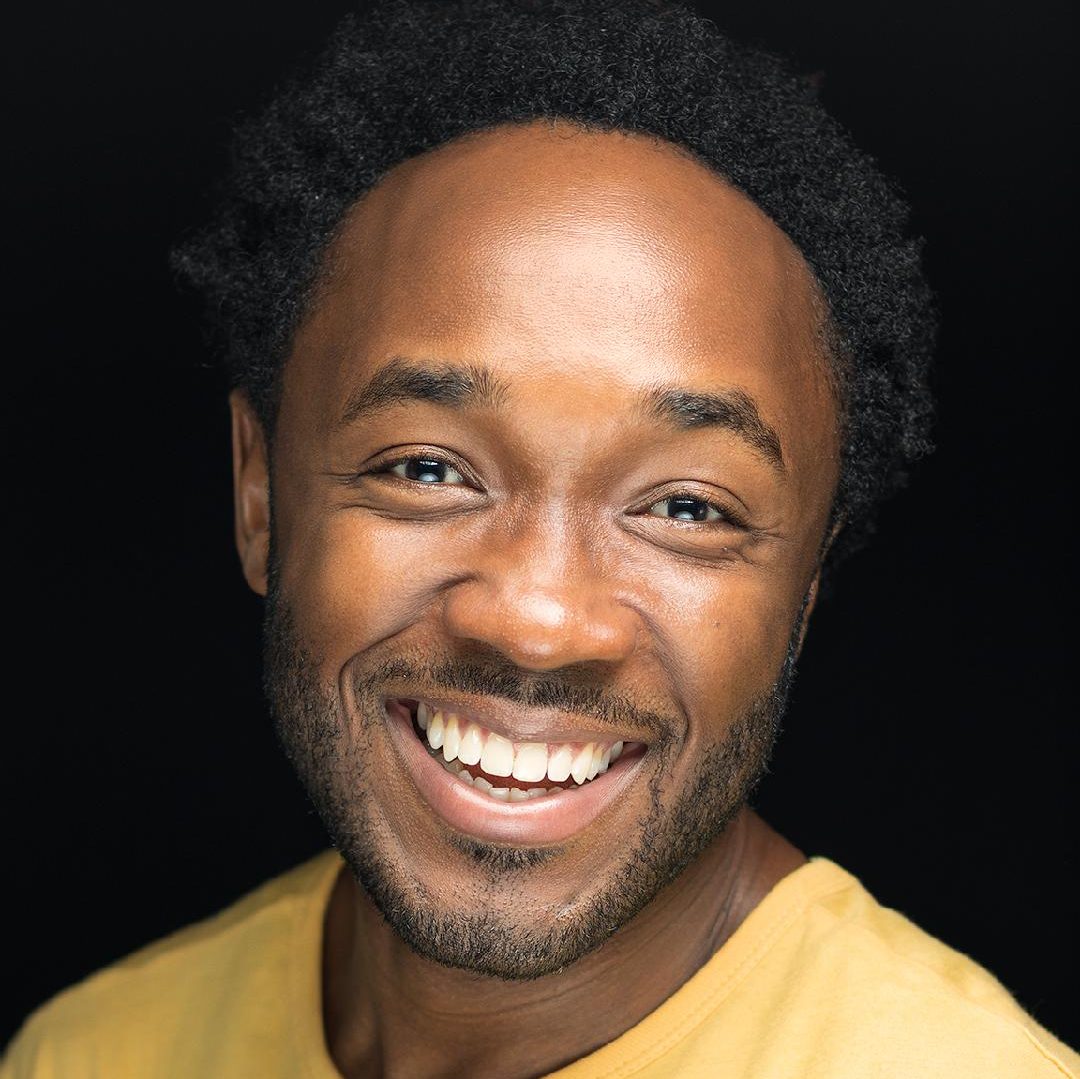
Phillip Gregory Burke is an Aquarius, artivist, actor and writer living in New York City. You can follow him @PhillipGBurke on the gram and the tweets.
Photo by Brandon Nick.
Extended Play is a project of The Civilians. To learn more about The Civilians and to access exclusive discounts to shows, visit us and join our email list at TheCivilians.org.
Author
-
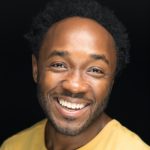
Phillip Gregory Burke is an Aquarius, artivist, actor and writer living in New York City. You can follow him @PhillipGBurke on the gram and the tweets.
View all posts








